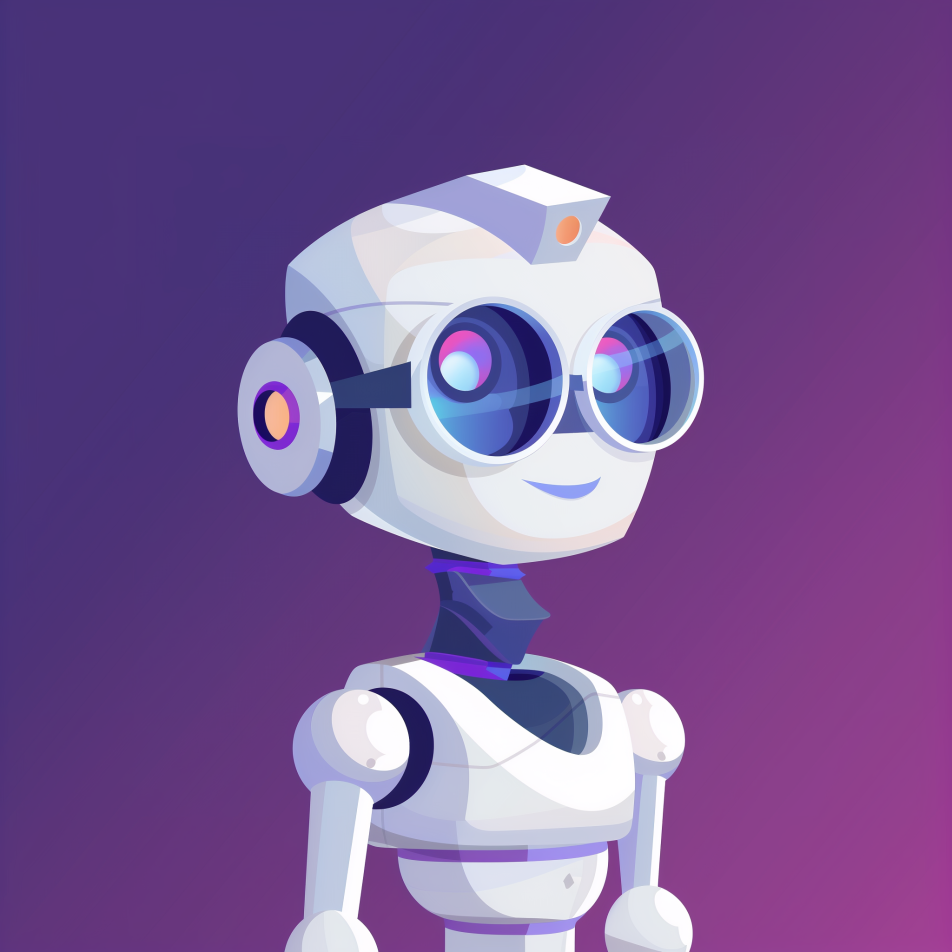summary
The Artificial Intelligence Blockchain Interface (AIBI) is a pioneering framework announced by Warden Labs, designed to integrate artificial intelligence (AI) capabilities directly onto blockchain platforms. This innovative system seeks to enhance the trustworthiness and reliability of AI outputs by employing cryptographic proofs to validate AI model results, thereby addressing widespread concerns about the inaccuracies often associated with AI technologies.[1][2]. AIBI is particularly notable for its potential to transform various sectors, including finance, healthcare, and supply chain management, by enabling developers to create more accountable and secure AI applications[3][4]. The AIBI framework operates on principles such as proof-of-computation and computational pipelines, ensuring that AI decisions are transparent and verifiable. CEO David Pinger emphasizes that AIBI aims to combat “broken AI infrastructure” and restore public confidence in AI systems, which have faced criticism for producing misleading or “hallucinated” outputs[5][6]. This initiative is timely, given the growing demand for ethical AI solutions that align with rigorous compliance standards, making the dialogue surrounding AIBI particularly relevant in today’s technology landscape[7][8]. In conjunction with its rollout, Warden Labs is organizing hackathons to stimulate creative applications of AIBI technology, encouraging developers to innovate solutions such as dynamic pricing algorithms and personalized recommendation systems[9][10]. However, while industry professionals express enthusiasm for the integration of AI and blockchain, there are also cautionary discussions about the ethical implications and potential risks associated with these emerging technologies[11][12]. Critics argue that without robust frameworks to address ethical challenges, AIBI could inadvertently contribute to “ethical nightmares” that compromise privacy and security[13][14]. As AIBI continues to evolve, its integration of smart contracts with AI capabilities represents a significant stride towards fostering operational efficiency and accountability. The framework’s success may redefine the landscape of AI technology, balancing technological advancement with the ethical responsibility necessary to ensure public trust in the digital age[15][16].
Background
The integration of Artificial Intelligence (AI) and blockchain technology has emerged as a transformative force across various sectors. AI enables machines to simulate human intelligence, performing complex functions such as data analysis, language processing, and decision-making[1]. Conversely, blockchain technology provides a decentralized, immutable ledger that ensures transparency and security in transactions[2]. This synergy between AI and blockchain is being explored for its potential to enhance trust and security in digital ecosystems, leading to a concept known as “decentralized AI”[3][4]. Ongoing monitoring and maintenance are critical for the effective functioning of systems that incorporate both AI and blockchain[5]. By continuously assessing the performance of these technologies, organizations can identify and rectify issues promptly, preventing major disruptions. This proactive approach not only improves system reliability but also helps detect underlying problems or risks early on, fostering productivity and operational efficiency[5]. The advancements in these technologies have prompted significant discussions about their implications, including ethical considerations related to bias in AI algorithms and the need for robust mechanisms to ensure fair decision-making[1][2]. The collaboration between AI and blockchain is particularly relevant in combating such biases by providing a transparent framework for recording AI decisions, thus promoting accountability and equitable access to services[6]. As organizations continue to explore these innovative technologies, the future holds considerable promise for enhancing both privacy and security in an interconnected world[4].
The AIBI Framework
Overview of AIBI
The Artificial Intelligence Blockchain Interface (AIBI) is designed to bring artificial intelligence capabilities on-chain, providing an intuitive interface for developers to integrate AI into their applications. AIBI leverages concepts such as proof-of-computation and computational pipelines to generate cryptographic proofs that verify AI model outputs, which are then validated on Wardens’ blockchain using an advanced consensus mechanism. This approach ensures that AI outputs are reliable and trustworthy, addressing previous issues with AI infrastructure that led to inaccurate or unsafe recommendations[7][8].
Trust and Transparency
David Pinger, founder and CEO of Warden Labs, emphasizes the importance of trust in AI, stating, “AIBI is here to bring truth to AI,” highlighting the necessity to overcome the challenges posed by “broken AI infrastructure” that has caused public distrust[7]. The AIBI framework aims to mitigate “AI hallucinations”—misleading or incorrect outputs—by providing a robust system that underpins AI decisions with cryptographic proof, enhancing accuracy, explainability, and privacy[8][9].
Applications and Innovation
AIBI enables a new class of AI applications across various sectors, allowing for innovative solutions such as dynamic pricing algorithms, sophisticated matching engines, and personalized recommendation systems. To foster creativity and development within this framework, Warden Labs is organizing a series of hackathons in Q4 2024, aimed at inspiring developers to create groundbreaking AI-driven experiences using AIBI technology[9][10]. Antonio Pitasi, founder and CTO of Warden Labs, asserts that “blockchain infrastructure is the best contender to make AI open,” positioning AIBI as a truly open AI infrastructure that facilitates secure integration for any protocol or application[10][11].
Future Directions
As AIBI continues to evolve, it is poised to set the standard for integrating AI with blockchain technology, focusing on enhancing smart contract capabilities and fostering interoperability between AI and blockchain systems. The ongoing research and development aim to address scalability, security, and efficiency challenges within the fused blockchain/AI domain[12][13].
Implications of AIBI
Enhancing Trust in AI
The introduction of the Artificial Intelligence Blockchain Interface (AIBI) is set to significantly bolster trust in AI systems by addressing fundamental issues related to accuracy, explainability, and security. David Pinger, CEO of Warden Labs, emphasizes that the flawed infrastructure of previous AI models has resulted in dangerous and opaque outcomes, leading to a collapse in trust as AI becomes increasingly integrated into everyday life[14][7]. AIBI aims to provide a robust framework that mitigates these risks by ensuring that all AI decisions are supported by cryptographic proof, thereby enhancing both user trust and AI accountability[8][7].
Integration and Innovation
AIBI is designed to facilitate a new class of AI applications by enabling developers to seamlessly incorporate AI capabilities into their products. This innovation is expected to catalyze a series of hackathons organized by Warden in late 2024, which will incentivize developers to create cutting-edge AI-driven solutions such as dynamic pricing algorithms and sophisticated matching engines[8]. By providing an intuitive interface and an on-chain verification mechanism, AIBI represents a pivotal step toward a future where AI can be trusted as a reliable partner in various industries, from finance to healthcare[7].
Ethical Considerations and Compliance
As organizations increasingly adopt AI technologies, the ethical implications of such integrations become paramount. AIBI not only addresses technical challenges but also paves the way for a more ethical framework in AI deployment. Conducting ethical audits of AI systems, as advocated in the context of AIBI, will help identify potential biases and privacy concerns, ensuring that ethical considerations are embedded throughout the organizational structure[15][16]. This approach promotes a culture of accountability and responsible AI use, encouraging all stakeholders to understand and manage the ethical risks associated with AI technology[17].
Future Prospects
The future of the Artificial Intelligence Blockchain Interface (AIBI) is poised for transformative developments, particularly through the integration of smart contracts and artificial intelligence (AI). As these technologies continue to evolve, several key areas of growth and innovation are anticipated.
Integration of Smart Contracts and AI
The merging of smart contracts with AI capabilities holds significant promise for various industries. Smart contracts could be utilized to automate complex processes, thereby reducing manual intervention, minimizing human error, and lowering operational costs.[18] This synergy is expected to enhance trust and transparency, crucial elements in sectors like finance, healthcare, and supply chains, where accountability is paramount.[19] AI-driven smart contracts may streamline legal processes, facilitating tasks such as contract creation, deadline tracking, and compliance management, ultimately reducing disputes and misunderstandings.[18]
Expanded Use Cases
As AI and blockchain technologies converge, numerous innovative use cases are emerging. In healthcare, for example, AI-enhanced blockchain solutions are facilitating secure and interoperable health records, which can significantly improve patient care and medical research.[19] Furthermore, the advent of decentralized autonomous organizations (DAOs) powered by AI and blockchain could revolutionize governance and commerce in the digital landscape.[19]
Challenges and Considerations
While the potential of AI-infused smart contracts is substantial, challenges remain. Ensuring responsible governance and application of AI technologies will be essential to fully realize their benefits.[20] Organizations must navigate the complexities of compliance and regulatory requirements, which necessitate robust frameworks and ongoing audits.[21] Additionally, the security of decentralized applications must be prioritized to address vulnerabilities that may arise with these advancements.[22]
Reception
The announcement of the Artificial Intelligence Blockchain Interface (AIBI) has garnered significant attention within various sectors, particularly among industry professionals and stakeholders in technology and manufacturing. The reception can be characterized by both enthusiasm and cautious scrutiny.
Industry Interest
The AIBI has been highlighted for its potential to revolutionize how businesses engage with blockchain technology, especially in managing compliance and operational efficiency. Organizations are particularly interested in its phased implementation strategy, which allows for gradual adaptation and testing within existing workflows[21]. This method of integration is seen as a way to minimize disruptions while maximizing the effectiveness of new technologies, aligning well with current industry practices that emphasize risk management and iterative learning.
Educational Initiatives
In conjunction with its rollout, there has been a call for educational initiatives aimed at equipping employees with the skills necessary to navigate the complexities of the AIBI. Tailored training sessions and workshops are anticipated, aimed at increasing employee engagement and understanding of the new system[21][16]. The focus on ongoing support and peer-to-peer learning is expected to enhance overall workforce adaptation and satisfaction, leading to improved operational outcomes.
Ethical Considerations
However, the AIBI’s introduction has also raised ethical concerns. Critics argue that companies must explicitly identify the ethical risks associated with emerging technologies, referring to them as potential “ethical nightmares” that could undermine privacy and security[16]. This has prompted discussions about the importance of establishing robust ethical frameworks and compliance measures to safeguard against such risks as the technology is adopted.
Future Prospects
The future of the Artificial Intelligence Blockchain Interface (AIBI) is poised for transformative developments, particularly through the integration of smart contracts and artificial intelligence (AI). As these technologies continue to evolve, several key areas of growth and innovation are anticipated.
Integration of Smart Contracts and AI
The merging of smart contracts with AI capabilities holds significant promise for various industries. Smart contracts could be utilized to automate complex processes, thereby reducing manual intervention, minimizing human error, and lowering operational costs.[18] This synergy is expected to enhance trust and transparency, crucial elements in sectors like finance, healthcare, and supply chains, where accountability is paramount.[19] AI-driven smart contracts may streamline legal processes, facilitating tasks such as contract creation, deadline tracking, and compliance management, ultimately reducing disputes and misunderstandings.[18]
Expanded Use Cases
As AI and blockchain technologies converge, numerous innovative use cases are emerging. In healthcare, for example, AI-enhanced blockchain solutions are facilitating secure and interoperable health records, which can significantly improve patient care and medical research.[19] Furthermore, the advent of decentralized autonomous organizations (DAOs) powered by AI and blockchain could revolutionize governance and commerce in the digital landscape.[19]
Challenges and Considerations
While the potential of AI-infused smart contracts is substantial, challenges remain. Ensuring responsible governance and application of AI technologies will be essential to fully realize their benefits.[20] Organizations must navigate the complexities of compliance and regulatory requirements, which necessitate robust frameworks and ongoing audits.[21] Additionally, the security of decentralized applications must be prioritized to address vulnerabilities that may arise with these advancements.[22]Show as PDF
References
[1]: Today’s Top Ten AI Technologies: Here’s Everything You Should Know
[2]: AI bias: how blockchain can ensure its safety
[3]: A Comprehensive Review of Blockchain in AI
[4]: How Blockchain and AI Can Work Together – Blockchain Council
[5]: Smart Contract Deployment: A 2023 Step-by-Step Guide
[6]: Integrating AI and Blockchain: An Inevitable Approach to … | Medium
[7]: Warden announces the Artificial Intelligence Blockchain Interface (AIBI …
[8]: Warden announces the Artificial Intelligence Blockchain Interface (AIBI)
[9]: Warden announces the Artificial Intelligence Blockchain Interface (AIBI …
[10]: Warden announces the artificial intelligence blockchain interface (AIBI)
[11]: Warden announces the Artificial Intelligence Blockchain Interface (AIBI)
[12]: Blockchain & AI: How They Integrate & 26 Examples | Built In
[13]: The Convergence of Artificial Intelligence and Blockchain: The … | MDPI
[14]: Warden announces launch of AIBI, an artificial intelligence blockchain …
[15]: 5 Challenges Businesses Face When Integrating AI Solutions
[16]: How to Avoid the Ethical Nightmares of Emerging Technology
[17]: Understanding Tax Planning for Emerging Industries
[18]: Smart Contract Implementation: Overcoming Challenges for Business Success
[19]: Artificial intelligence and Smart Contracts – Lexology
[20]: Exploring AI and Blockchain Integration: Everything You Need … – Medium
[21]: When Smart Contracts become smarter: The power of AI in … – LinkedIn
[22]: Making Smart Contracts More Accurate and Efficient with AI











